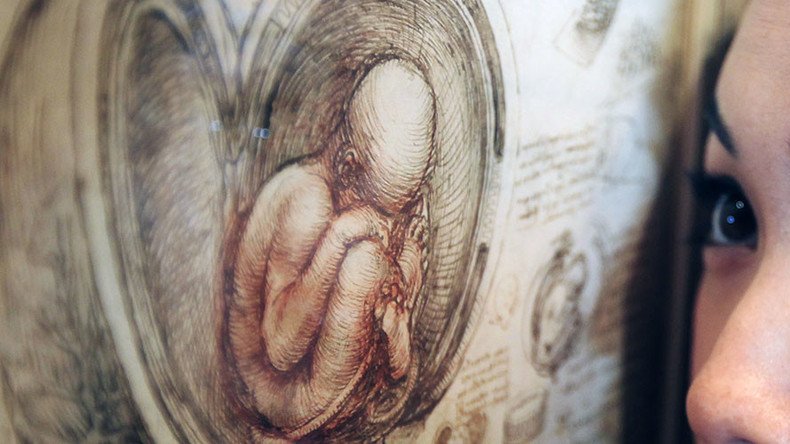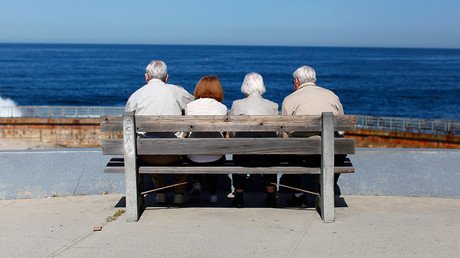Old before birth? Oxygen levels in womb affect aging in adulthood, study finds

Anti-aging products are a multi-billion dollar industry, but it seems there's only so much that creams and pills can do. A study found that much of our aging 'destiny' is set before birth, and is related to the amount of oxygen present in the womb.
The study, led by a team of researchers from the University of Cambridge, centered around telomeres, otherwise known as the ends of chromosomes. In short, telomeres play a similar role to the plastic that binds the ends of shoelaces, preventing chromosomes from fraying. As humans get older, telomeres become shorter and shorter, meaning their length can be used as a proxy to measure aging.
The researchers measured the length of telomeres in blood vessels of laboratory rats born from mothers who were not fed antioxidants during a normal or complicated pregnancy. In some of the rats, they simulated one of the most common complications in pregnancy – a reduction in the amount of oxygen a baby receives – by placing a group of pregnant rats in a room containing seven percent less oxygen than normal.
They found that adult rats born from mothers who had less oxygen during pregnancy had shorter telomeres than rats from uncomplicated pregnancies, and experienced problems with the inner lining of their blood vessels. Both of these results signified those rats had aged more quickly and were predisposed to developing heart disease.
However, when pregnant rats in that group were given antioxidant supplements, their offspring's risk of developing heart disease was lowered.
“Antioxidants are known to reduce aging, but here, we show for the first time that giving them to pregnant mothers can slow down the aging clock of their offspring. This appears to be particularly important when there are complications with the pregnancy and the fetus is deprived of oxygen. Although this discovery was found using rats, it suggests a way that we may treat similar problems in humans,” Dr. Beth Allison, first author of the study, said in a statement.
In addition, offspring born from uncomplicated pregnancies – when the fetus received appropriate levels of oxygen – also benefited from antioxidants, and showed longer telomeres than those rats whose mothers did not receive such supplements during pregnancy.
The study's lead author, Professor Dino Giussani from the Department of Physiology Development & Neuroscience at the University of Cambridge, said the findings prove that the environment in the womb could be even more important than humans' post-natal environments.
“Our study in rats suggests that the aging clock begins ticking even before we are born and enter this world, which may surprise many people,” he said.
“We already know that our genes interact with environmental risk factors, such as smoking, obesity and lack of exercise to increase our risk of heart disease, but here we’ve shown that the environment we’re exposed to in the womb may be just as, if not more, important in programming a risk of adult-onset cardiovascular disease,” Giussani added.
The research, funded in the UK by the British Heart Foundation, was published in the journal FASEB on March 1.














